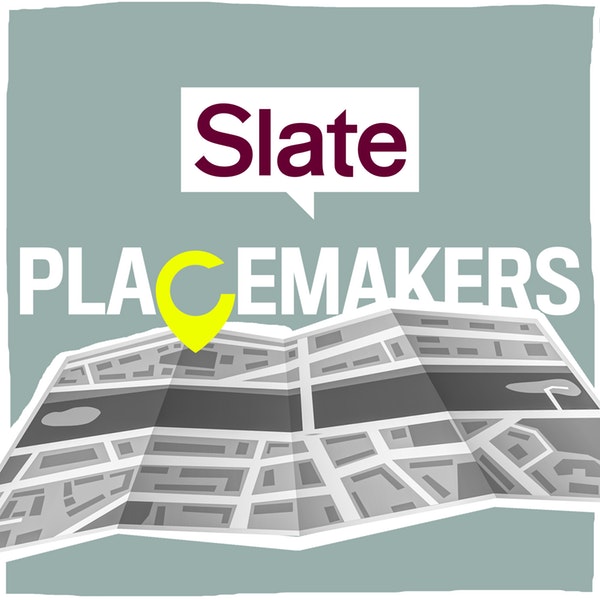

Mary Poole has been a nurse, an arborist, a jewelry-maker, and a mom. But she’s never been a politician or an activist. At least not until one heartbreaking photo from halfway around the world changed everything for her. Now she’s on a mission to make her hometown of Missoula, Montana, home to refugees fleeing conflict globally. But not everyone in this conservative state is happy about it.
Download episode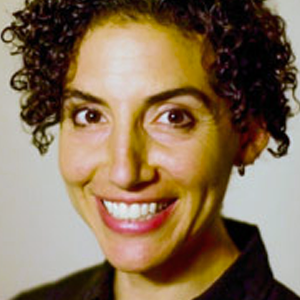
Rebecca Sheir has been a host and reporter on All Things Considered, Morning Edition, Marketplace, Here and Now, The Splendid Table, and the Alaska Public Radio Network. Follow her on Twitter.
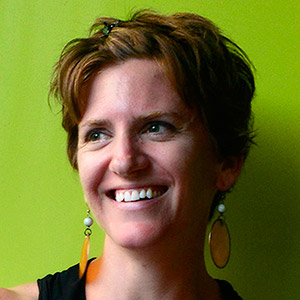
Anne Bailey is a visual journalist and multimedia producer based in Missoula, Montana.
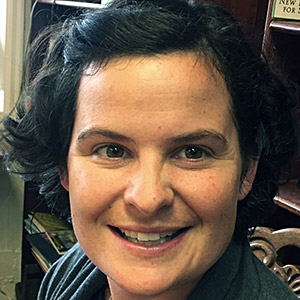
Mary Poole is the founder of Soft Landing Missoula, an organization aimed at helping Missoula be a supportive community for relocating refugees.
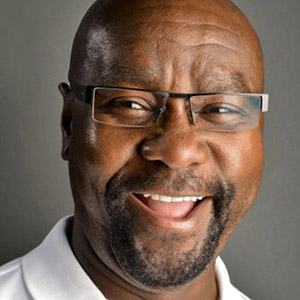
Wilmot Collins is a Liberian refugee who’s been living in Helena, Montana, with his family since 1994.
Rebecca Sheir: In September 2015, something very particular brought the horrors of the Syrian refugee crisis into focus. It was a photograph. You probably saw it, and if you did, it’s probably still emblazoned in your brain. It showed a body. The drowned body of a 3-year-old Kurdish boy. His name was Aylan Kurdi, and he died trying to cross the Mediterranean Sea from Syria to Greece with his mother and older brother. Aylan was at the edge of the sea lying facing down in the sand . In any other context, you’d think he was sleeping peacefully, which makes the reality all the more devastating. Far away in Missoula, Montana, Mary Poole saw that photo. The image hit her, as she put it, “like a ton of bricks.” Poole was a new mom. So were many of her friends.
Mary Poole: We were all kind of like, “Oh my god. What can we do? There has to be something we can do for this, you know there has to be something we can do for this.”
Sheir: I’m Rebecca Sheir and from Slate magazine, this is Placemakers: stories about the spaces we inhabit and the people who shape them.
After seeing the devastating image of Aylan Kurdi or others like it many of us shared Poole’s impulse. What can we do? How can we alleviate some of this suffering? Maybe we donate money to an organization working with refugees? Maybe we sign a petition? Call our elected officials, asking them to do something on our behalf?
But Mary Poole wanted to do more. She quickly learned that Montana and Wyoming were the only two states in the country that didn’t have organized refugee resettlement programs. In other words, there was something she could do, right there at home. So Poole and her friends came up with this idea: They would welcome 10 Syrian families to Missoula.
But as Poole herself will tell you: They had no idea what they were getting themselves into. We asked Missoula-based producer Anne Bailey to find out what happened next.
Poole: Come in.
Bailey: Hey, Poole
Poole: Hey, how are you?
Bailey: Good, how are you doing?
Poole: Good. Welcome.
Bailey: Thank you.
Bailey: I’m meeting Mary Poole at her new house in the Upper Rattlesnake neighborhood of Missoula, Montana. If you haven’t been to Missoula, it’s paradise for lovers of the great outdoors. Lots of mountains and forests and clear rivers, plus more coffee shops and breweries than a city like Missoula should be able to sustain. People practice whitewater kayaking and surfing every day on the river through town. You know A River Runs Through It?
“When I am alone in the half light of the canyon, all existence seems to fade to a being with my soul and memories and the sounds of the Big Blackfoot River and a four count rhythm, and the hope that a fish will rise. Eventually, all things merge into one, and a river runs through it.”
Bailey: That’s Missoula. Mary Poole has a rack of elk antlers on her wall in her living room, but it’s hung against this crazy geometric pattern of purples and mauves she painted above the fireplace, so it doesn’t feel super country. More like Montana chic. Kind of like Poole herself.
Poole: Wow, I’m a pretty typical Missoulian in the fact that I’ve held down quite a few jobs here in Missoula, multiple jobs at multiple at the same time
Bailey: Poole’s been a nurse, an arborist, a jewelry maker. Now she’s taking care of her toddler son. But she’s never been a politician or an activist. At least not until she saw that picture of Aylan Kurdi.
Poole: It just became a conversation on what can we do, can we do more, is there an outlet, is there an option to do more could we ever host refugees here? What does that look like? What is a refugee?
Bailey: Poole and a few others started digging into the process of what it would take to welcome refugees to Missoula. And they found out that 40 years ago, Missoula had actually done that. A social service nonprofit, International Rescue Committee, had an office here.
Poole: We’ve very successfully resettled hundreds of Hmong refugees here in the early ’80s, late ’70s/early ’80s. We’ve also resettled groups of Belarusians, Ukrainians, so we do have a history, a really great strong history in doing it. It was really then became the process of how do we restart this, how do we reopen the office.
Bailey: Poole and her friends created an organization called Soft Landing Missoula to do just that: reopen Missoula’s IRC office and start bringing refugees approved by the State Department to Montana. IRC is one of nine nonprofit resettlement agencies approved by the State Department to help get refugees back on their feet in their new homes.
First, Soft Landing Missoula had to prove all over that the city had the resources necessary to successfully resettle new refugees: a good enough school system, enough housing and jobs, and social services. Poole got letters of support from county commissioners, the mayor, and others. But then things got ugly.
Woman: They pray five times a day. Are we going to have the mosque calling to prayer call in the Bitterroot? No!
Bailey: When citizens of Ravalli County, just south of Missoula, got wind of all these letters supporting refugee resettlement, they weren’t happy. This is from a Feb. 19 county commissioners meeting in Hamilton, Montana.
Man: This is about setting the stage so that there will be battle in Ravalli county, so that ISIS will come after our women. And unfortunately, in Ravalli County, women pack weapons.
Bailey: Welcome to what many people call “the real Montana.” This is one of the most conservative states in the country. People take their local lineage very seriously. Here, you feel guilty saying you’re “from” Montana unless you can trace your family back several generations. It’s an open carry state, overwhelmingly white, and not the most welcoming of outsiders. Bumper stickers say things like, “Welcome to Montana. Now go home.”
By Montana standards, Missoula is ultra-liberal. The wrath of the more conservative parts of the state started coming down on Poole.
Poole: You know, I got that in an email once: “Who sent you?” I was like, “Um, I don’t know really what you mean by that. Like, I’ve lived in Missoula for 15 years. I’m a fourth-generation Montanan.”
Greta Bates: People are just scared. They’re scared of the unknown.
Bailey: That’s Greta Bates. She’s a core member of Soft Landing Missoula. We’re sitting in Poole’s backyard while their kids play nearby.
Poole: Do you want to walk in the water? Yeah, go play!
Poole: I do think it’s interesting to see people that are worried about terrorism become people that would terrorize others. It’s been difficult for me to see that people don’t necessarily want the facts. That they want to believe what they want to believe and that they seek out likeminded information and likeminded sources just to verify instead of seeking out the other side.
Todd Geery: Well they’re afraid of the terrorists. We don’t have a proper vetting system. So they’re afraid of that.
Bailey: That’s Todd Geery. He’s a friend of Poole’s, but he’s also concerned about what she’s doing.
Like Mary Poole, Geery has never been a political person, but he’s planning to run for Missoula County commissioner this fall on the Republican ticket. He says because he wants to restore the people’s voice in local government. He’s one of many who think there should have been public discussion before county commissioners signed a letter of support for reopening an IRC office here.
Geery: Missoula’s always been a very safe place. We’re surrounded by mountains, and people have always had that concept you don’t let them in the door.
Sheir: So, can the starry-eyed altruist moms of Soft Landing Missoula convince their conservative state that Missoula should welcome refugees again? We’ll find out, after the break.
Sheir: From Slate magazine, it’s Placemakers. I’m Rebecca Sheir.
When we left off, Missoula mom Mary Poole and others were getting a lot of angry, even scary, pushback against their dream of reopening a long-closed refugee resettlement office.
Part of what they learned is that Montanans simply didn’t know how arduous and selective the refugee resettlement program is. Turns out that the migrants who make it here to the states are but a tiny fraction of all the migrants we might see in the media.
Here’s a rough outline of the numbers. Right now, across the world, about 60 million people have been displaced by war and conflict. Of those 60 million, only about 20 million are registered with the United Nations to begin the process of applying for refugee status, something that might make them eligible for aid in their own countries. Of that 20 million, just 1 percent end up relocating to a different country. And usually that different country is not the United States, because this country is extremely hard to enter. The vetting process typically takes two to three years. That’s two to three years before a refugee can even set foot here and be resettled to a place like Missoula.
Poole: It’s not that somebody just types a name in a computer, “Oh look! Nothing comes up. You’re good to go, buddy!”
Sheir: So that became part of Mary Poole’s new mission: to educate folks in Montana about how refugee resettlement actually works. And in doing that, she found a strong ally: one of the state’s most prominent refugees. Producer Anne Bailey picks up our story.
Bailey: So, I’m on my way to meet Wilmot Collins in Helena, but apparently his house doesn’t pick up on GPS, so I’m going to some school that’s close to his house, and then I need to give him a call, which is kind of classic Montana. Wilmot Collins is a Liberian refugee who’s been living in Helena, Montana, for the past 22 years.
Bailey: Hello?
Collins: Yeah
Bailey: Is this Wilmot?
Collins: Yeah
Bailey: Hey, I made it to the school. I’m actually I passed the school, but I’m at Tiny’s Gym
Collins: Ok, If you’re at Tiny’s Gym, do you see the traffic light there?
Bailey: Wilmot Collins and his wife, Maddie, were living in Liberia when a massive civil war broke out there in the 1990s. Maddie had lived in Montana years before as an exchange student. So when the civil war broke out, she appealed to her old host family in Helena to get her out. They succeeded. Wilmot, however, wasn’t as fortunate.
Bailey: Hi, Wilmot. Good, how are you? Nice to meet you. Thanks for the directions.
Bailey: I finally find Wilmot’s house in Helena and jump into the car with him and his wife. We’re heading to their church.
The Collins’ story exemplifies the tough road would-be refugees have to travel to get to the States. Even though the two were married, and Wilmot’s wife was pregnant with their child, he had to spend more than two years going through the vetting process in Ghana and Sierra Leone.
Collins: It was intense It’s a 14-step process. When I got to step five, believe me, I called Maddie up and said I’m done with this. This is way too crazy.
Bailey: Think about that. Wilmot had his wife and a 2-year-old daughter he had never seen in the U.S. He was essentially homeless and alone in Sierra Leone, but unable to return to Liberia because of the civil war. And he’s telling me the refugee vetting process to enter the U.S. was so invasive and exhausting that he actually considered staying behind in Africa rather than going on with it.
But in the end, obviously, he succeeded. He finally joined Maddie and their daughter in Montana in 1994. And now, believe it or not, Wilmot Collins is kind of a celebrity here in the state capital, which is somehow even less ethnically diverse than Missoula. Wilmot and Maddie attend the Covenant United Methodist Church in Helena.
Woman: Good to see you, hi!
Collins: Hi, Sharon.
Woman: He’s someone we’re so proud of. Just he and Maddie and their family could not be warmer, more genuine people of integrity. We’re just always happy to see him and he’s so busy, he doesn’t get here often
Collins: Geez look at this guy. You get away from me and quit growing. How are you?
Boy: Good.
Collins: You hanging in there?
Boy: Yeah.
Collins: This guy’s only 15. How old are you?
Boy: 15 this month.
Collins: See. He’s not even 15 yet and he’s what 6-foot-what?
Boy: Two.
Collins: [Laughing.] I knew him when he was born baby. Real baby, and now look at him
Bailey: It hasn’t always been easy for these refugees in Helena, though. Like, really not easy.
Collins: Even when people marked our home with KKK, the neighborhood got together and washed our walls down. Where else do you find that? Where else do you see that? That’s why I love this town. That’s why I love this state.
Bailey: It says a lot about Collins and his family that they’ve chosen to see the racism they’ve experienced as fear of the unknown rather than outright hate. It wasn’t just that their home that was marked with KKK once. One summer, they found a burned match in their parked car, which had also been vandalized with the words “KKK” and “Go back. Final warning.” And just last summer Wilmot’s son, Bliss, was working as a bank teller in Helena.
Collins: And he said, “How may I help you today, sir?” And this person that came for service said, “I’m here to take out money to kill you [expletive deleted] who think you own the country.” Yes. Just last summer. We always taught them that you always think before you react. And his response was: “So how much do you need to kill us up?” Yes. I thought that was the most appropriate business answer.
Bailey: Bliss is now a student at the University of Montana in Missoula. Wilmot and Maddie’s daughter is in the Navy in Miami. And both Wilmot and Maddie themselves are in the Navy and Army Reserves, respectively. They’ve all heard the argument that refugees just take other people’s jobs in the U.S. once they arrive.
Collins: The refugees are not coming to take anybody’s job. The refugees are just looking for a second chance at life. You know how hard it is to just leave everything behind and come into a strange land? It’s not easy I fled Liberia. When I arrived at JFK I had 25 cents. 25 cents. I didn’t have enough money to put in the phone booth to call. I had to ask someone for 10 cents. And that’s how I was able to call Maddie and tell her I was in America. And three weeks after that, I was working. And we’ve been contributing to this community, to our state, since we’ve been here.
Bailey: So Wilmot Collins was a natural ally for Mary Poole and her group Soft Landing Missoula just 2½ hours away. He knows that in a real way, he and his family are the face of refugees living successfully in Montana. And he’s happy to play the part.
Collins: I’ll take my hat off any day to the community of Missoula for embracing this idea. And I told Mary, and she would tell you this, whenever she calls, I answer. I told her, just give me a day. Whatever I’m doing I will drop it. And I have never failed her yet. Because I know how important it is.
Bailey: In the end, with a little PR boost from Wilmot Collins in Helena, Mary Poole and Soft Landing succeeded in getting the International Refugee Committee office reopened in Missoula. Now they’re making the transition from being organizers to volunteers who will help refugees adjust to life here.
Back in Missoula, I’m driving around with Poole while she runs a million errands to prepare for the first arrival. It’s a family from the Democratic Republic of Congo.
Poole: The Bike Hanger has offered us space for people to drop off donations for home goods and clothing and things to set up people’s apartments. So, I’m headed there to see how much space there is left because I think we may have overwhelmed them with donations in the last week.
Poole: I’m with Soft Landing Missoula, and you’ve offered us space to have donations dropped off here, so I wanted to see how things are going?
Employee: Full. They’re going full.
Poole: They’re going full. That’s good to know.
Bailey: Turns out, the trailer Soft Landing has been lent by the Bike Hanger to store donations is already reaching capacity. But after a few minutes of chatting, the owner offers up another section of the shop to store any donation overflow. No big deal.
Poole: OK, off we go to train, to train and drink some beer.
Bailey: Next we head to a local brewery where the new director of the Missoula IRC office and Poole are training a group of five volunteers who want to help refugees.
Poole: Welcome! Thank you guys. This is so exciting! Our first mentor team. I’m Poole, and I haven’t gotten the opportunity to meet you guys yet—so I’m the founder of Soft Landing Missoula, and we’re really, really excited especially since the IRC office is here and things are a go and our family’s coming. It’s been a long year and a really short year, and things have happened fast.
Bailey: Things have happened fast. It’s been less than a year since Poole saw that picture of Aylan Kurdi. Less than a year since she started teaching herself everything she needed to know about refugee resettlement in the U.S. Less than a year since she became the face of a movement in her hometown.
Bailey: The Congolese family finally arrives. Because they’re the first, and because of all the controversy around this program, refugee organizers are very protective and don’t want media interviewing them. But I do meet with Poole after the big day. She looks ecstatic and exhausted all at once.
Poole: It’s actually been a challenge for me to get out of survival mode and into celebration mode because it’s just been so busy and so much.
Bailey: But then she tells me she got to take the family to the Missoula farmers market the weekend after they arrived. And her face just lights up.
Poole: We parked and we were walking to the farmers market, and I was walking alongside the mom and the family. She just looked left and looked right and just, like, let out this sigh and said, “Missoula. Missoula. Missoula.” You know, and she doesn’t speak any English, and I think it was just this thought that had been going through her head for so long. She knew she was going to this place, but what is this place. And, I don’t know, it was just this breath that she took for a moment.
Sheir: Soon enough, more refugee families will be saying “Missoula.” The International Rescue Committee says it’s been assigned some 20 to 25 more families in the coming year. And Mary Poole and her squadron of local volunteers will be there to greet them.
Our story today was reported by Anne Bailey. Placemakers is a production of Slate magazine and is produced by Mia Lobel, Dianna Douglas, and Michael Vuolo, and edited by Julia Barton. Our researcher is Matthew Schwartz. Eric Shimelonis does our mixing and musical scoring. Our theme was composed by Robin Hilton. Steve Lickteig is our executive producer. I’m Rebecca Sheir.
For more information about today’s show and other episodes of Placemakers, go to Slate.com/placemakers. You can drop us a line at placemakers@slate.com. You can follow us on Twitter; our handle is @SlatePlacemaker. And if you like what you’re hearing, please give us a review or rating on iTunes. It really does help.
Coming up next time on Placemakers: After a powerful tornado chewed up every single house and building in a small town in Kansas, city leaders convinced residents to rebuild as a green utopia.
Man: There’s a lot of people, there’s still people today probably that’ll tell you, “Just get out of the way and go fast, build it quick, don’t mess with building permits, don’t mess with green. Just get it built up and get your life back normal.” Well guess what? Life was never going to be normal again.
Sheir: We’ll visit Greensburg, Kansas, where locals eventually discovered that sometimes it isn’t easy being green.